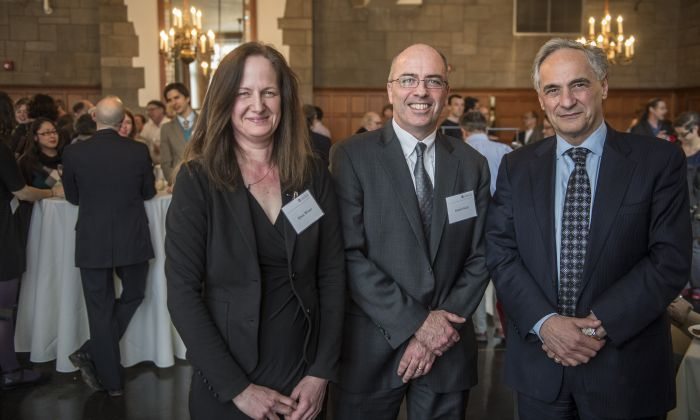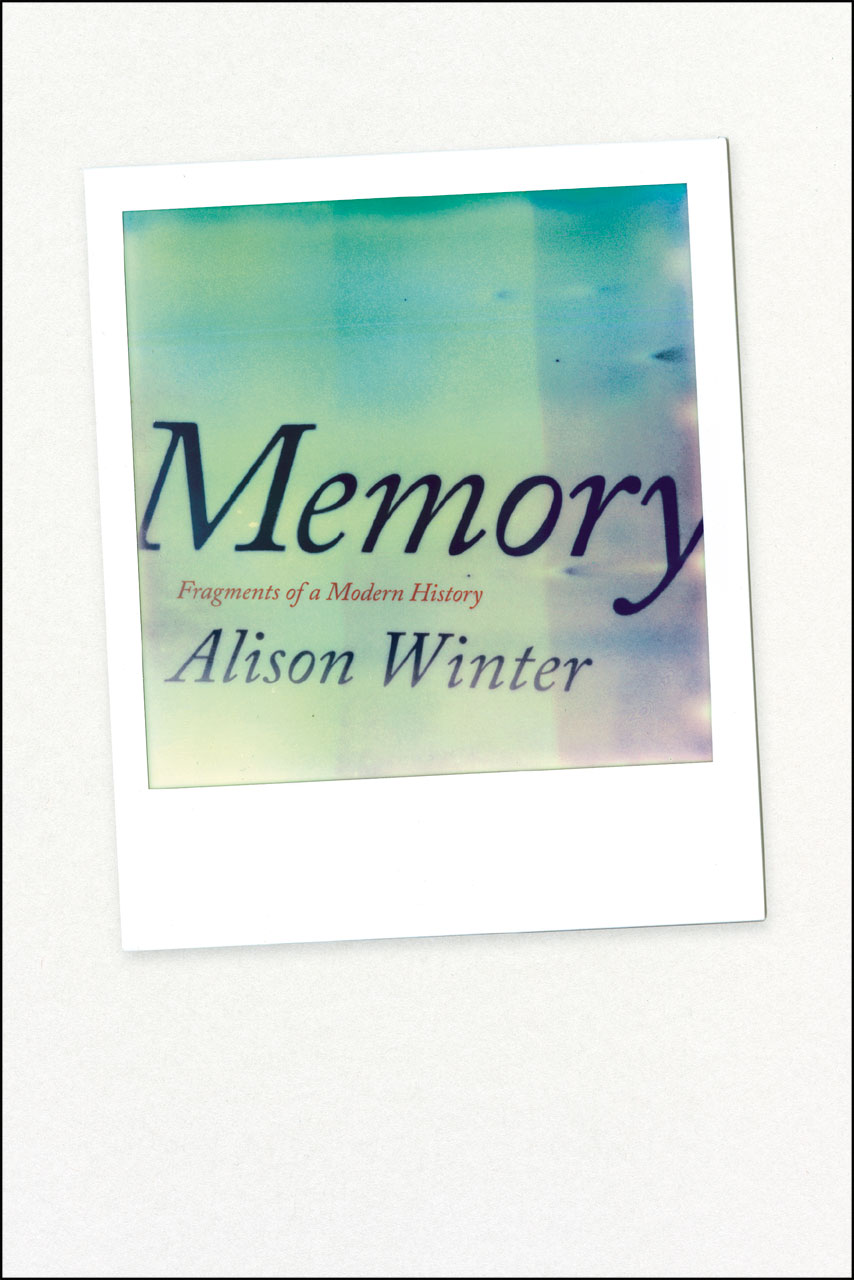2014 Gordon J. Laing Prize
Each year, the University of Chicago Press awards the Gordon J. Laing Prize, “to the faculty author, editor, or translator of a book published in the previous three years that has brought great distinction to the Press.”
This year, we were delighted to honor Alison Winter’s Memory: Fragments of a Modern History with the 2014 Laing Prize. From the official commendation:
“Tracing the cultural and scientific history of our understanding of memory, Winter introduces readers to innovative scientists and sensationalistic seekers. She draws on evidence ranging from scientific papers to diaries to movies in order to explore the way that new understandings from the laboratory have seeped out into psychiatrists’ offices, courtrooms and the culture at large. Along the way, she investigates the sensational battles over the validity of repressed memories and shows us how changes in technology—such as the emergence of recording devices and computers—have again and again altered the way we conceptualize and even try to study, the ways we remember.”
Winter, in turn, was kind enough to let us publish her remarks from the Laing Prize reception earlier this month; read them in full after the jump below.
***

Photo by: Robert Kozloff. Courtesy of: UChicagoNews.
Thank you. First of all, I want to say that it matters enormously that this decision was made by my peers. I have won a few prizes for previous work, but this is the one that means the most.
I want to thank my editor at the University of Chicago Press, Christie Henry, and also to remember the person who introduce me to the Press, the wonderful editor of my first book, Susan Abrams, who sadly is no longer with us. This award gives me a great opportunity to underscore just how engaged the Press is with the university, and with the intellectual life of the university. I was involved in a conference on the history of science two weeks ago, and several editors from the Press not only came to the conference but asked questions. People attending the conference from other universities, all with their own presses, remarked on how unusual and impressive that level of engagement and attention was.
The rest of what I’d like to say on this occasion is about the University of Chicago itself:
I came to the University of Chicago with this book project in the works. I had some notes, but nothing actually written. I had a topic, but I also had enormous deficits of expertise. My background was in Victorian history of science, while the material that would eventually become Memory was of a different period, a different country, and, to understand, required expertise in numerous areas about which I knew essentially nothing.
But the University of Chicago is the perfect place to be if that’s your problem. It is the ideal place in which to act according to what my husband, Adrian Johns, calls the “principle of hot pursuit”—the term comes, of course, from police chases that cross state lines, but what he means is a license for academics to stray into other disciplinary turf in pursuit of a hot topic. That was where I found myself: pursuing many fascinating topics that pulled, me, in hot pursuit, over various disciplinary lines.
Finding myself for the first time in a large history department, I knew I could draw on the advice of my Americanist colleagues like Jim Sparrow, Kathy Conzen, and Jane Dailey. But I also found it amazingly easy to connect with faculty in farther-flung fields, in a way that would have been much more difficult at some other institutions. When I began to encounter a lot of legal cases in my research, I found my way to Geoffrey Stone, and then to Emily Buss, who gave me a lot of guidance over the next several years. I got extensive advice from several colleagues in psychology, including Howard Nussbaum, Amanda Woodward, and Susan Goldin-Meadow, while Dan Margoliash helped me with many questions relating to the neurosciences. And when I wanted to figure out how to explore the history of moving images and recording devices as a central part of my project, James Chandler, and, especially, Tom Gunning, helped me in ways that changed the way I thought not only about the history of cinema and media, but about the history of technology, and the history of the human sciences.
That intellectual assistance is indicative of the kind of multidisciplinary engagement and collegiality I found at Chicago, a type of engagement that is fundamental to the way this university works. It thrives partly because the culture of the institution is in a general sense intellectually welcoming–or at least, I found it to be. But there is also a structural reason: the committees, centers and workshops that thrive in the interstices of departments intensify cross-disciplinary connections, in a way that I think is incredibly healthy intellectually. It certainly has been for me. I don’t think I could have written Memory without it.
I’d like to close by expressing an appreciation of one of those committees in particular: the Committee on Conceptual and Historical Studies of Science, with which I have been affiliated since I came here. As I looked over the list of Laing Prizes that have been awarded in recent years, I was struck by the fact that three out of the last four have gone to CHSS faculty. CHSS is perhaps the smallest graduate program in the university, but one of the things I love about it is that it embodies one of the biggest distinctions between Chicago and some other universities, namely, this commitment to meaningful engagement among faculty from many different fields. I feel very grateful and lucky to be here.
***
To read more about Memory, click here.
